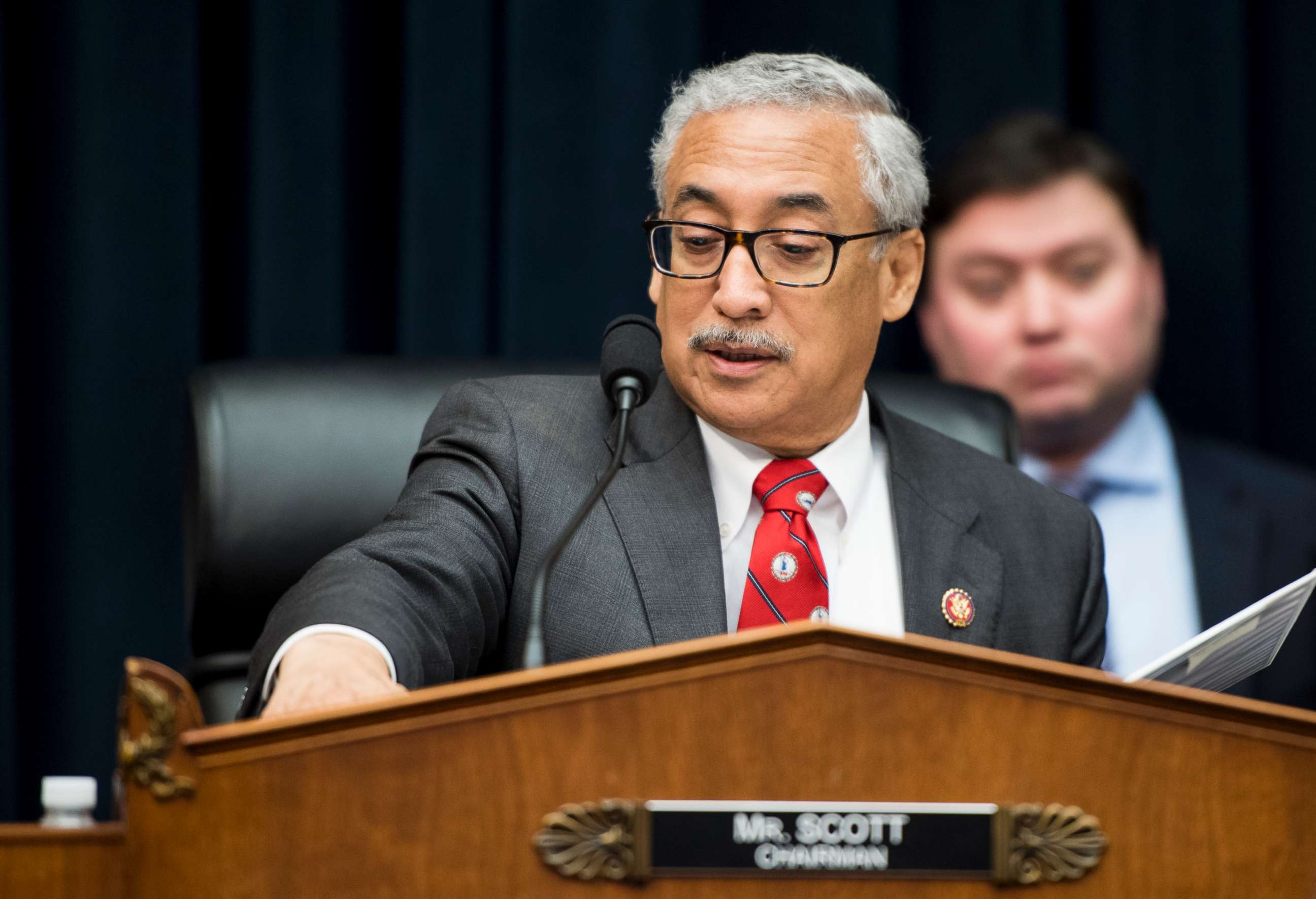Amid college admission scam, single mother tells House lawmakers how hard it was to pay for her college tuition
Jenae Parker says she tried everything to stay out of debt.
After enrolling at the University of Toledo, Jenae Parker told members of Congress that she tried everything to stay out of debt.
Parker, now 29, said she received about $4,300 in financial aid through a Pell Grant and worked three jobs -- at Starbucks, the campus grill and Target. But it wasn’t enough.
She took out more than $20,000 in federal and private loans, she explained Wednesday, but working the three jobs and going to school at the same time proved to be too much.
"It was exhausting, I could not focus on school and two years later I dropped out," Parker told members of the House Education and Labor committee.
She went back to school three times over several years and in that time, got married, had a daughter, got divorced and worked a variety of jobs but ultimately earned her associates degree.
"Our bills got so tight we couldn’t afford food -- and this wasn’t about ramen -- we lacked enough money to eat regularly. Then we were evicted," she said. "I thought this was my fault, but then I realized 50 percent of college students are also dealing with food and housing insecurity."

Now, the single mother to her 8-year-old daughter Journey -- 11 years after first heading off to college -- is working toward a bachelor’s degree in human resource management from Franklin University.
"On TV, college looks like a lot of fun. Students live in dorms, eat pizza on campus, relax at the gym between classes -- it really seems like a mini-vacation. But that image is nothing like what I’ve experienced in real life," Parker said Wednesday, at a hearing about college affordability.
"I suspect my reality is far more common than the media stories. It needs to be a greater part of the conversation about the real college experiences that Americans are having."
At the end of the hearing, Rep. Virginia Foxx, R-N.C., and the ranking member on the committee, said she was "frankly flabbergasted" by Parker’s story and "the lack of concern by the University of Toledo for her."
"I think that points out again, lots of problems at the state level and I want to believe that no student going to an institution in North Carolina would have face that total lack of concern," Foxx said.
Parker’s story came as a timely and stark contrast to the college admissions scandal revealed by the Justice Department just a day before. The bribery scam exposed tales of wealthy parents who bought their children’s way into exclusive colleges.
"We’re about 24 hours after, you know, a real scandal in higher education where we’ve seen I think a renewed sense of the inequality in our higher education system," said Rep. Josh Harder, D-Calif.
On Tuesday, federal prosecutors said that individuals allegedly paid up to $6.5 million so that their children would be admitted into top colleges, such as Yale, Stanford and the University of Southern California.
"This case is about the widening corruption of elite college admissions through the steady application of wealth combined with fraud," said Andrew Lelling, the U.S. attorney for the District of Massachusetts, at a news conference on Tuesday.
"To your belief, did your parents bribe any school administrators or coaches to get you into school?" Harder asked Parker Wednesday.
After she said no, he joked, "You sure there’s no like, endowed building a couple million dollars that helped get you into Franklin?"
According to the written testimony submitted to the committee from James Kvaal, president of The Institute for College Access & Success, "the share of public college bachelor's degree recipients with federal or private student loan debt increased from 60 percent to 66 percent between 2000 and 2016.
He added: "And they are borrowing more: graduates' average debt load increased 18 percent between 2000 and 2016 after adjusting for inflation."
Committee Chairman Bobby Scott, D-Va., said during his opening statement that from 1990 to 2015, "the median household income increased by 12 percent but the net cost of attending college increase by 81 percent."
Harder, during the hearing, also confirmed with Kvaal that aggregate student debt has tripled over the past ten years.
"I know the odds are low that Journey and I will ever escape poverty, but I also know that a college education helps," Parker said in her written testimony to the committee. "I am clearly willing to work for this bachelor’s degree. But on days when money is tight and the bills are due, I wonder why I am paying the price for a badly broken system."
ABC News' Anne Flaherty, Aaron Katersky, Bill Hutchinson and Mike Levine contributed to this report.




